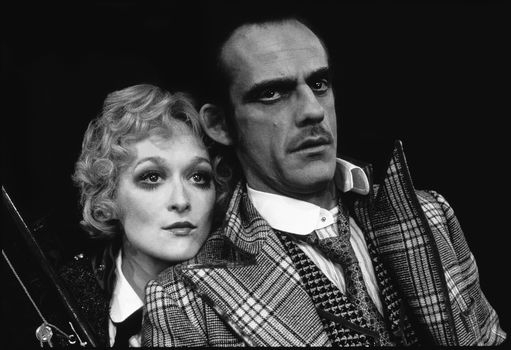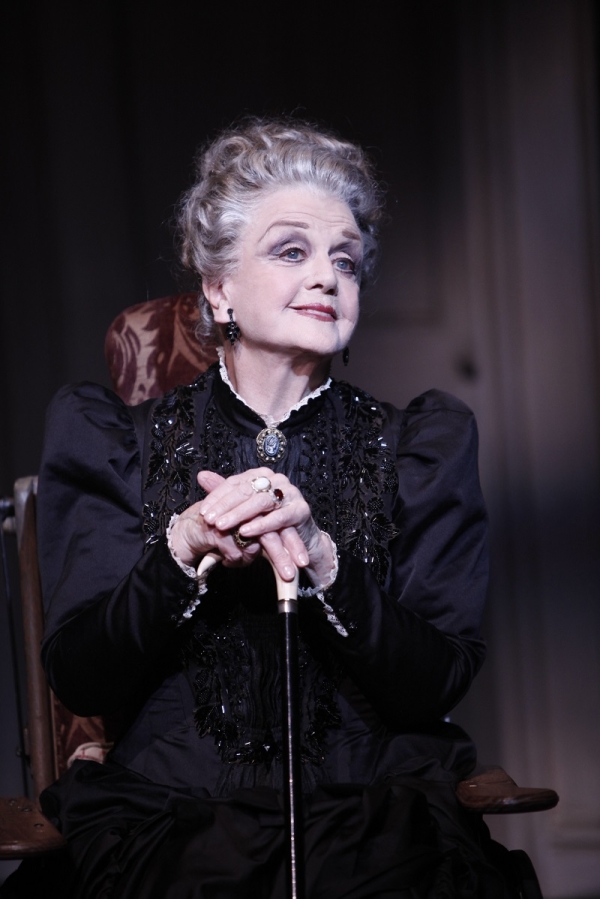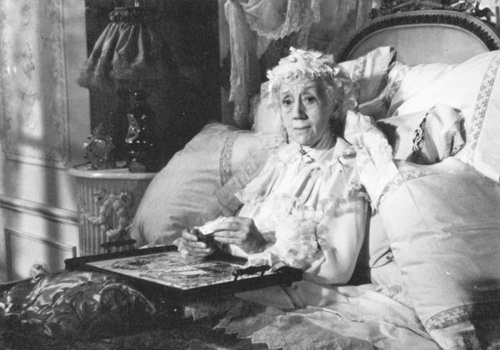Connecting With Brecht
Follow a great theater poet, and you can’t tell where you’ll wind up.

(© Martha Swope)
I started this essay thinking that it would be about Bertolt Brecht. There’s a lot of Brecht in New York’s theatrical air at the moment, what with Classic Stage Company‘s just-ended revival of A Man’s a Man and Atlantic Theater Company‘s upcoming take on Threepenny Opera. Strands of my own Brechtian past have cropped up lately too: The director-choreographer David Gordon is down in Philadelphia, workshopping his freewheeling spinoff of my translation of Brecht’s pivotal but neglected play, Roundheads and Pointheads, with its great score by Brecht’s second favorite composer, Hanns Eisler.
And on Monday night, March 17, Red Bull Theater, in its Revelation Readings series, will be performing my adaptation of Happy End, the Brecht-Weill team’s 1929 attempt at a sequel to Threepenny Opera. The venue, the Lucille Lortel Theatre on Christopher Street, has a particular aptness: This is where the long-running 1950s Threepenny Opera played, followed by Brecht on Brecht, and Berlin to Broadway with Kurt Weill: Brecht and Weill might be said to haunt the place.
So I thought it might be time to write about Brecht and his value for us today. As usual, though, a piece of news distracted me: My dear friend Joyce Castle told me that she was getting ready to sing her first Madame Armfeldt in A Little Night Music for Houston Grand Opera. Joyce, an operatic mezzo-soprano who is also a first-rate actress, put in years of heroic service at the late, lamented New York City Opera, where her boundary-crossing music-theater roles included Mrs. Lovett in Sweeney Todd, the Old Lady in Candide, and Mrs. Jones in Kurt Weill’s Street Scene. I’ve translated Brecht-Eisler songs for her, as well as the French music hall songs she sang in Belle Epoque (a piece by Martha Clarke, who is staging Atlantic’s new Threepenny). Inevitably, my train of thought, erratically routed as usual, began to chug from Weill to Sondheim, from "poor BB" to wealthy Madame A, from 1920s Berlin to 1910s Stockholm.

(© Joan Marcus)
That brought back to mind a fascinating piece of information I’d stumbled across while I was prepping to review Angela Lansbury’s performance as Madame Armfeldt in the 2009 Broadway revival of Night Music. (You don’t go in unprepared when writing about a figure of Dame Angela’s eminence.) My prep had included re-viewing, for the first time in several years, Ingmar Bergman’s Smiles of a Summer Night, the 1955 film on which Stephen Sondheim’s cherished musical is based. And with Lansbury on my mind, my attention had unexpectedly been caught by the quiet, sharp elegance of the petite elderly lady who played Bergman’s Madame Armfeldt.
Here was a presence very different from the one established by actress Hermione Gingold in the musical version’s original production. The owner of the chateau where much of the story’s action unfolds, Madame Armfeldt is a retired courtesan who has wisely husbanded her professional earnings. How much polish she has acquired during her years of interacting with the upper-bracket gents who made use of her services is a matter for director and actress to weigh.
Gingold had been adorably lewd, her every stroke of grandeur attended by a hint of coarse mockery. Regina Resnik, in a City Opera revival, had locked away the sensual past, to be stern, almost schoolmarmish. But the lady in Bergman’s film — eagle-eyed, low-keyed, discreetly masking her dismay at her daughter’s chaotic love life — was, quite simply, a lady. She had risen not only to the status of the men who once employed her but to the gravitas that went with it.
The lady’s name, when I checked the credits, rang a distant bell: Naima Wifstrand. I’d heard that name before, in a very different context. Off the reference shelf came that odd book, useful to critics and translators, the Brecht Chronicle — just the volume for those who crave to know what the great theater poet was up to during every month of his crowded life. (I told you we’d get back to Brecht sooner or later.) Yes, there she was in the index: Naima Wifstrand. Between the Chronicle and Wikipedia, I filled in some of the gaps in her amazing story.

Now remembered mainly for her appearance in Smiles of a Summer Night, Wifstrand (1890-1968) had led several notable lives before Bergman enshrined her in his now-classic film. As a young singing actress, in the 1910s and '20s, she had been the toast of Scandinavia, known as "the Stockholm nightingale," trilling her vivacious way through the popular operettas of the period. Her performance in the title role of Emmerich Kalman’s Czardas Princess (better known in New York and London as The Gypsy Princess) was particularly celebrated.
In the late 1920s, when her singing voice became erratic, Wifstrand moved aggressively into nonmusical acting. When theater audiences dwindled with the onset of the Great Depression in the 1930s, she found her political ideas — which can hardly have played much part in her operetta career — coming to the fore. The pretty songbird of waltz-dream escapism revealed herself as a staunch and determined leftist. She not only played Mrs. Peachum in a mid-'30s Stockholm revival of Threepenny Opera, but also opened an acting school for workers, with strong Communist Party affiliations.
That’s why she was among the Swedes to whom Brecht turned for help when he and his actress wife, Helene Weigel, finally made the decision to get out of Germany. Sweden, ostensibly neutral, was the nearest safe haven. When the Brechtian entourage arrived, it was Wifstrand who found them a place to live, and — to siphon the family some much-needed cash — gave Weigel a teaching job at her school. Brecht wrote his "Practice Scenes for Actors" (including the droll one in which Romeo, mooning over Juliet, treats a desperate tenant farmer harshly) so that Weigel could have suitably class-conscious material to work on with her students. Wifstrand’s presence inspired even greater work from him, but more about that next week.
Stay tuned to TheaterMania for part II of this "Thinking About Theater" column, which will appear on Friday, March 21.









